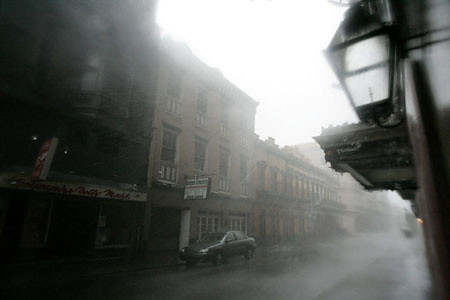"The Case of the Female Orgasm", by Elisabeth A. Lloyd, is savaged in this review by David Barash of the University of Washington.
Barash points out,
en passant, that human design flaws - such as narrow birth canal, male nipples and (arguably) the infrequency of the female orgasm - are all evidence unfavourable to the notion of a benign intelligent designer.
Looked at another way, of course, the existence of the female orgasm
per se (and all of this is, of course, highly controversial in the sense of the female orgasm being adaptive or not), could be seen as clinching evidence that an intelligent designer does exist.
Coming Closer to God
The indefatigable Claude de Bigny, the blog's historical correspondent, has been brooding about this matter for a while now (see links below), and is proposing the De Bigny Hypothesis: Concerning the Paucity of the Female Orgasm's Regular Occurrence (POFORO). De Bigny postulates that the female orgasm's unreliability, far from being a result of incompetent males or the physical cycles and mental moodswings of females, is actually the work of a benign Intelligent Designer.
"He did it to help perpetuate the species by means of a non-rational, physical yet quasi-godly impulse - sexual love," de Bigny declares. "It is an impulse which, in part, impels and influences the species to believe in a force beyond rationality alone. Thus, paradoxically, by means of an unthinking physicality it introduces a possibility for the species to transcend this mundane earthly plot. The orgasm's periodic unattainability is the crux: it makes its achievement seem a truly transcendental moment of connection. It is all about coming closer to God."
De Bigny frowns, as if in disapproval of his own, appalling pun.
"To be clear about this," he continues, warming to his theme, "the pleasure experienced by females is essential to the benign Intelligent Designer 's plan. It is essential to realise that we are not talking about the mere procreative urge here!"
The emphasis on female pleasure, de Bigny explains, and on the infrequency of its attainment, makes the De Bigny Hypothesis: Concerning the Paucity of the Female Orgasm's Regular Occurrence (POFORO) a logical, ID-specific, falsifiable theory, and a departure from the procreation- and mate-selection- type concepts favoured - as de Bigny expostulates, "by that old dog Dawkins and his pals."
When someone protests that there are other "design faults" for which such an explanation wouldn't work, de Bigny is only momentarily stumped.
"The appendix is a bit of a bugger as far as the benign Intelligent Designer goes", he concedes. "It doesn't falsify POFORO, but it does make one wonder. Whatever can he have been thinking of?"
But de Bigny is not to be put out of his stride.
"For a benign Intelligent Designer to be feasible," he reasons, "we need to posit an Unintelligent Designer working by his side - a Dumb Designer, mislaying the instruments, clumsily putting his thumb into delicate plasmic hominid designs, stubbing out his cigarillo into the prototype creature's eye, and so forth. Who can say? It's a mere detail."
Fighting words from young Claude de Bigny. It's now up to the scientists to take up the gauntlet and evaluate the De Bigny Hypothesis: Concerning the Paucity of the Female Orgasm`s Regular Occurrence (POFORO).
Read:
The Cunning Contentlessness of Intelligent Design here.
Read Claude de Bigny's take on Intelligent Design
here.
Link to David Barash's review in "Evolutionary Psychology":
Let a Thousand Orgasms Bloom! by David P. Barash

